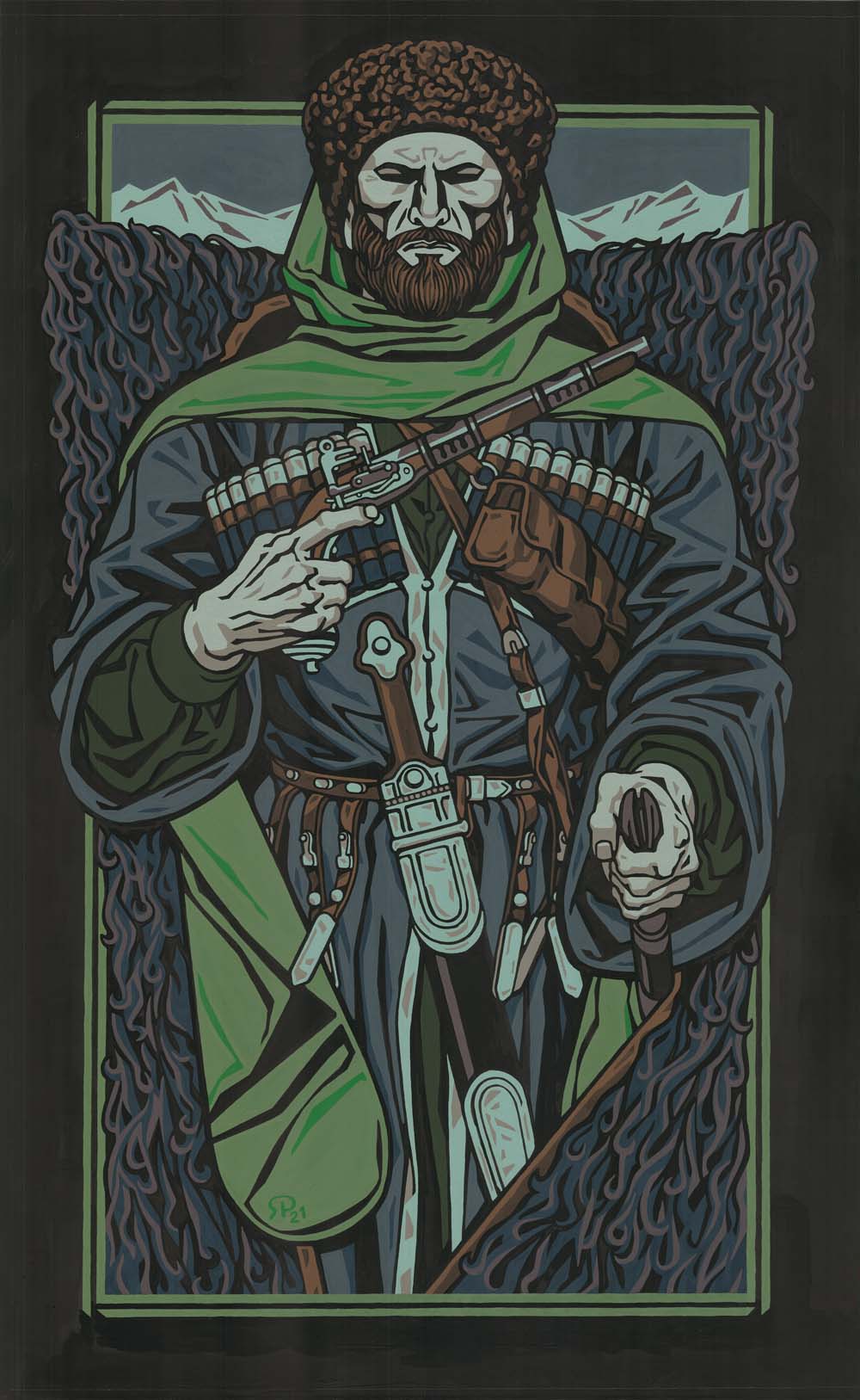

Beibulat Taimiev
Beibulat Taimiev was one of the prominent leaders of the national liberation struggle of the highlanders of the North Caucasus against the tsarist colonial policy in the Caucasus.
Beibulat Taimiev was born in 1779 in the village of Biltoy. His name was first mentioned in sources in connection with the events of 1802 - his "squad" of 7 abreks in response to killings of chechens made a successful raid on the cordon line. At this time, the future hero is no more than 20-23 years old. In just five years, Beibulat became one of the most influential Chechen elders. He had an outstanding political sense, was well aware of the character of the actions of the tsarist regime in the Caucasus, and knew how to establish the right relations with the authorities. When the tsarist authorities saw that Beibulat's authority was rapidly growing, they considered it necessary to bring him to their side, the authorities regarded Taymiyev as a representative of the independent people. And through an intermediary he was offered the officer's rank of captain with an annual salary, which he accepted.
Returning to Chechnya after his first appointment, Beibulat not only blatantly ignored his official duties arising from his officer rank, but for the next three years he led numerous detachments and constantly attacked the Caucasian line. But in 1811 Taimiev's contacts with the Caucasian administration intensified again. Beibulat Taimiev called for dialogue with the tsarist authorities. He was dictating conditions at the negotiating table, and seeking the key points under which Chechens would agree to join imperial Russia on a voluntary basis. He tried to find a compromise acceptable to both sides and to the Chechens themselves. That would allow Chechnya to join Russia as an autonomous republic, while retaining its customs, traditions, religion and land. Often Taimiev managed to reach certain peace agreements, but because of the constant change of the viceroys of the Caucasus, military clashes broke out again, the success of which contributed to the fact that Taimiev was named as the head of Chechnya - that is, the military-political leader of the Chechens.
Beibulat's activity lasted for 30 years.
He was never able to carry out his plans to incorporate Chechnya into the Russian Empire through his own efforts. In the early 1830s Muridism became stronger in Dagestan and armed struggle of highlanders against feudal lords and Tsarist authority began. And Beibullat dies in 1831, according to one version, killed by one of his many blood feuds.
Beibulat Taimiev was born in 1779 in the village of Biltoy. His name was first mentioned in sources in connection with the events of 1802 - his "squad" of 7 abreks in response to killings of chechens made a successful raid on the cordon line. At this time, the future hero is no more than 20-23 years old. In just five years, Beibulat became one of the most influential Chechen elders. He had an outstanding political sense, was well aware of the character of the actions of the tsarist regime in the Caucasus, and knew how to establish the right relations with the authorities. When the tsarist authorities saw that Beibulat's authority was rapidly growing, they considered it necessary to bring him to their side, the authorities regarded Taymiyev as a representative of the independent people. And through an intermediary he was offered the officer's rank of captain with an annual salary, which he accepted.
Returning to Chechnya after his first appointment, Beibulat not only blatantly ignored his official duties arising from his officer rank, but for the next three years he led numerous detachments and constantly attacked the Caucasian line. But in 1811 Taimiev's contacts with the Caucasian administration intensified again. Beibulat Taimiev called for dialogue with the tsarist authorities. He was dictating conditions at the negotiating table, and seeking the key points under which Chechens would agree to join imperial Russia on a voluntary basis. He tried to find a compromise acceptable to both sides and to the Chechens themselves. That would allow Chechnya to join Russia as an autonomous republic, while retaining its customs, traditions, religion and land. Often Taimiev managed to reach certain peace agreements, but because of the constant change of the viceroys of the Caucasus, military clashes broke out again, the success of which contributed to the fact that Taimiev was named as the head of Chechnya - that is, the military-political leader of the Chechens.
Beibulat's activity lasted for 30 years.
He was never able to carry out his plans to incorporate Chechnya into the Russian Empire through his own efforts. In the early 1830s Muridism became stronger in Dagestan and armed struggle of highlanders against feudal lords and Tsarist authority began. And Beibullat dies in 1831, according to one version, killed by one of his many blood feuds.
"Beibulat Taimiev" 2021. Paper, tempera. 90.5х55

"His (Taimiev's) arrival in Arzrum made me very happy:
He was already my guarantor of a safe
crossing the mountains and Kabarda."
Alexander Pushkin
He was already my guarantor of a safe
crossing the mountains and Kabarda."
Alexander Pushkin
En
/


